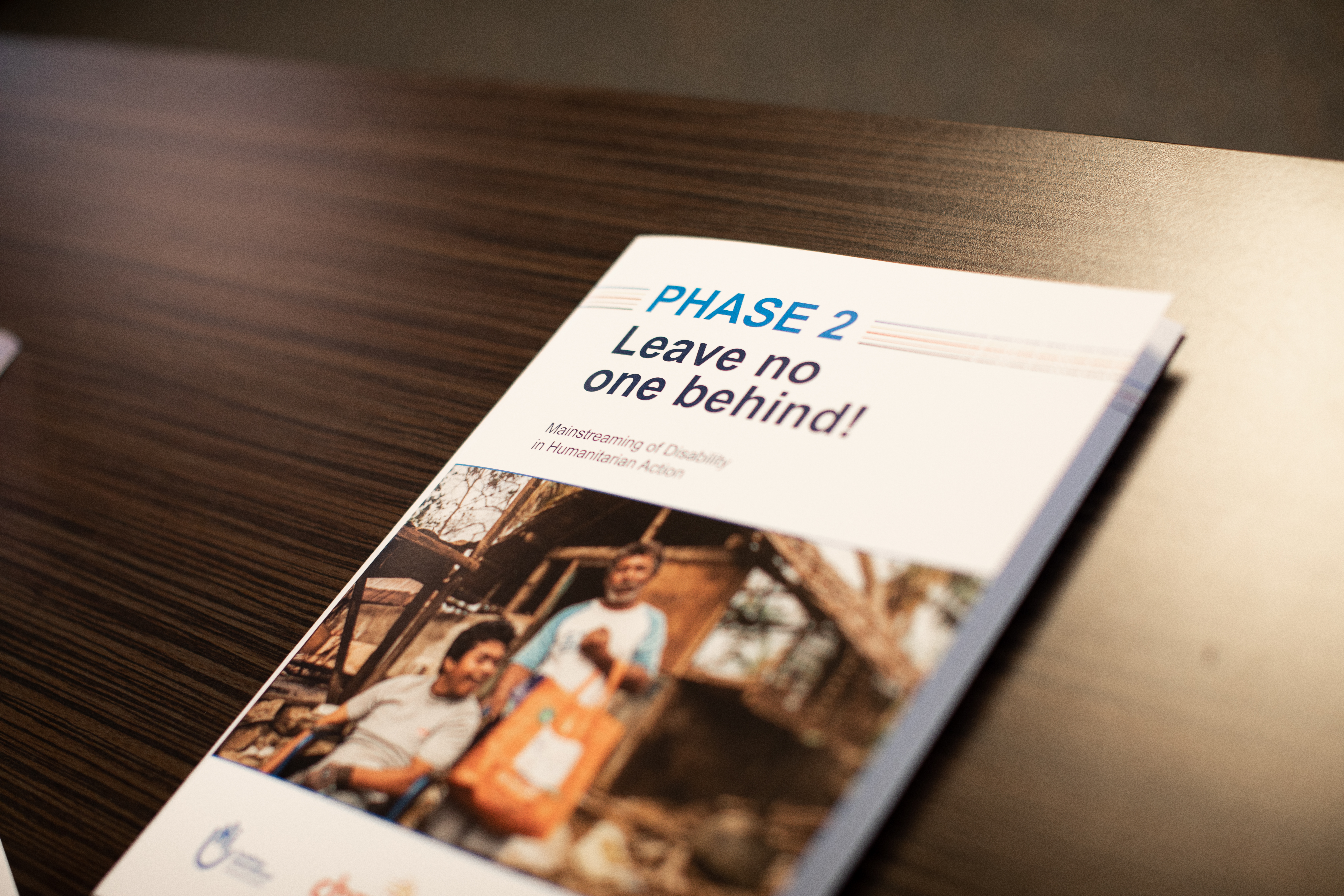
© Laura Thomas/ HI
Project Review "Phase 2 - Leave no one behind!"
Dear readers, participants and project partners,
After three-and-a-half years, the second phase of our capacity-building project series "Leave no one behind!" has written its last lines. For a seamless transition, we are currently working on the third project phase!
In Phase 2, our aim was to further promote the inclusion of people with disabilities in humanitarian action. We have collaborated at international, national and local levels to make knowledge on inclusion more accessible and to develop capacities.
Introduction
Our work is rooted in the firm believe that full and equal participation of persons with disabilities in humanitarian contexts can only be promoted through a human rights-based approach. In addition to building inclusive core competencies of humanitarian actors, the development and operationalisation of the IASC Guidelines supported by an improved evidence-base and documentation of promising practices and lessons learnt plays a central role.
In addition to building the core competencies of humanitarian actors, the development and operationalisation of the IASC Guidelines on Inclusion of Persons with Disabilities in Humanitarian Action, as well as the documentation of good practices, are very important.
In the following, we share a summary of our project activities and highlights of the last three-and-a-half years.
The project built on three pillars:
Globale Guidelines & Coordination Mechanisms
Capacity Building (Trainings & Technical Support)
Applied Accompanying Research, Universities & Specialised Events
Conclusion
We have been accompanying change processes towards inclusion for several years, first in Phase 1, then in Phase 2 and now Phase 3 is already on its way. Every step towards change shows the hard work of our project participants, partners and team.
We would like to thank you for everything and express our appreciation!
These experiences, feedback and recommendations from the evaluation of Phase 2 will be implemented in Phase 3 of the project.
In "Phase 3 - Leave no one behind!" we will continue to work at international, national and local level. A regional focus will be on West and East Africa. Our goal is to further promote the operationalisation of the IASC Guidelines on the Inclusion of Persons with Disabilities in Humanitarian Action through continued capacity building activities, the development of tools and the building of local technical support and local surge capacity mechanisms, as well as improved data through applied research and documentation of good practice.
More information will be announced on our website soon, so stay tuned!
The executive summary of the evaluation report and the documentation of promising practices are available now and can be downloaded below.
If you have any questions about our project activities, please contact us at the following address: LeaveNoOneBehind@deutschland.hi.org
The project is funded by the German Federal Foreign Office (AA) and carried out together with the Christoffel Blindenmission Christian Blind Mission e.V. (CBM) and the Institute for International Law of Peace and Armed Conflict (IFHV) at the Ruhr-University Bochum.